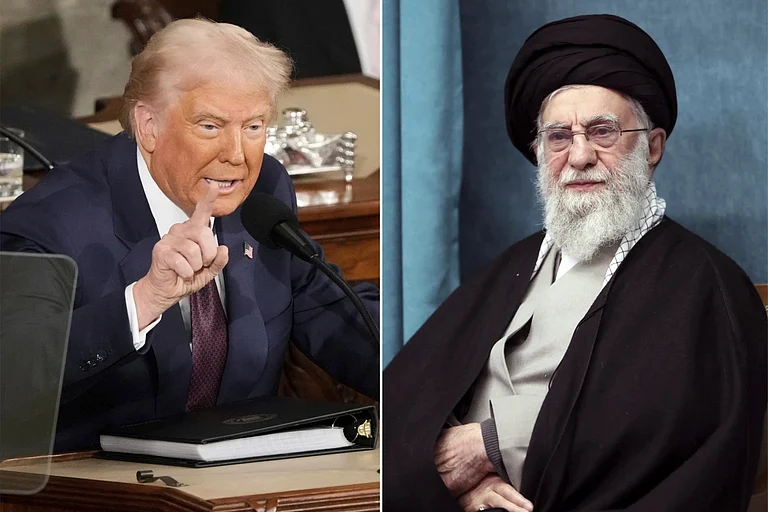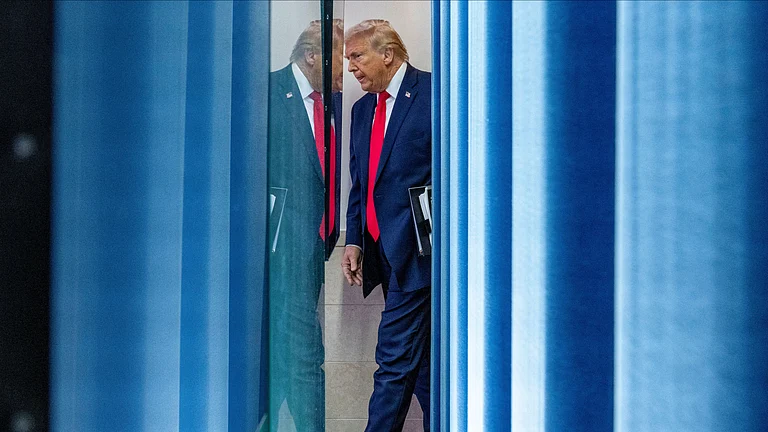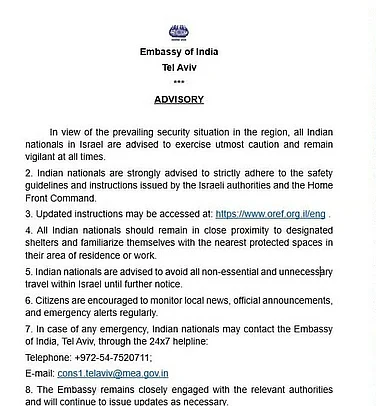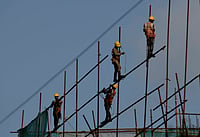The United States of America rallied behind a new beacon of hope – a symbol of freedom as Donald Trump emerged "triumphant" from a shooting attempt during his campaign trail. “Make America Great Again”, his campaign promise echoed with a renewed intensity aimed at steering America back to its former ideals. In the Land of the Free, this might seem like a step towards strengthening the cause of freedom and liberty. But, does it really?
On July 4, the United States of America celebrates its Independence Day as it reaffirms its commitment to the tenets of democracy. However, from border control to abortion rights, and capping the intake of foreign students, freedom might have taken a back seat in America.
In Outlook Magazine’s November 11, 2024 issue, Whitewash, we looked at how abortion rights shaped the US political landscape during the presidential elections. Ruchira Gupta stood outside the Carafem clinic in Mount Juliet, Tennessee, located in the unassuming Providence Pavilion. This clinic was once central to reproductive healthcare in the Nashville area, but it also found itself at the centre of the fight over abortion rights. In 2021, the clinic was targeted by anti-abortion protesters who staged a blockade, hoping to prevent women from accessing care. The protesters live-streamed their efforts, and the scene outside was tense, with patients trying to enter the clinic as protesters chanted slogans and police maintained order.
Back then, abortion was still legal in Tennessee, but now the landscape has completely shifted. In August 2022, after the Supreme Court’s Dobbs v. Jackson decision led to Tennessee’s total ban on abortion, Carafem had to halt all in-person abortion services. The clinic remains open for telehealth and other healthcare services, but the absence of in-person abortion care is deeply felt here.
This anti-abortion rhetoric can be credited to Trump. Ankita Kumar traces the resurgence of Trump by pointing towards an imperative question – how did we even get here?
She highlights the January 6, 2021 event where hundreds of people barged onto Capitol Hill in Washington DC, causing damage to public property, assaulting the police and crying foul about the election, which the incumbent president, Donald J. Trump, apparently lost. The violence on Capitol Hill sent shockwaves across the United States and the world and kicked off the largest investigation in the Federal Bureau of Investigation’s (FBI) history. One would think an incident like this would end one’s political career in America. Well? Apparently not.
We might think that the judiciary offers respite when the executive oversteps. Saumyajit Ray explains the political battleground that is the American courtroom. Whether it was the Establishment Clause of the First Amendment or the Due Process and Equal Protection Clauses of the Fourteenth Amendment, the verdicts delivered by the US Supreme Court had major implications for the federal balance of power.
Like everything else in America, judicial verdicts have remained strictly ideological, meant to fulfill serious partisan objectives. Like the executive and the legislature, the judiciary in the United States is a purely ideological branch of government. The Constitution is indeed what the “judges say it is”; only that the judges may say different things at different times to serve their own ideological purposes.
In Outlook Magazine’s April 1, 2025 issue, World At Reset, Avantika Mehta sheds light on Executive Order (EO) 14160, which is at the heart of the USA’s current legal turmoil. It strips citizenship from American-born children of undocumented immigrants, including those born to parents on temporary US visas. This marks a departure from established law, which explicitly states that a person is naturalised as a US citizen if “the person is born in the United States.” Within hours of Trump signing the order, attorneys general from Washington, New Jersey, Arizona and Oregon filed suits, arguing that the order “flagrantly violates the 14th Amendment” of the US Constitution.
Apart from the domestic tussles, America’s international outlook has also shifted significantly. Trump is now chasing a Nobel Peace Prize, nevertheless by supplying weapons and bombing nuclear facilities.
In Outlook Magazine’s November 21, 2024 issue, Cry Freedom, Seema Guha raised the pertinent question of whether Trump will fuel or finish wars? She pointed out the ongoing wars—Israel’s in Gaza and Lebanon, and Russia’s war in Ukraine. Trump was expected again to walk out of the Paris Climate Agreement and unfreeze bans on drilling for oil, including in the Arctic, to help companies make money by allowing fracking. In short, a body blow in the fight against global warming. America under Trump has become more protectionist and inward-looking with trade wars with China and other countries.
In context of the Israel-Hamas war, Amir Ali states that the “Israel has the right to defend itself” nostrum has become the American equivalent of the “Four legs good, two legs bad” slogan in George Orwell’s Animal Farm.



























